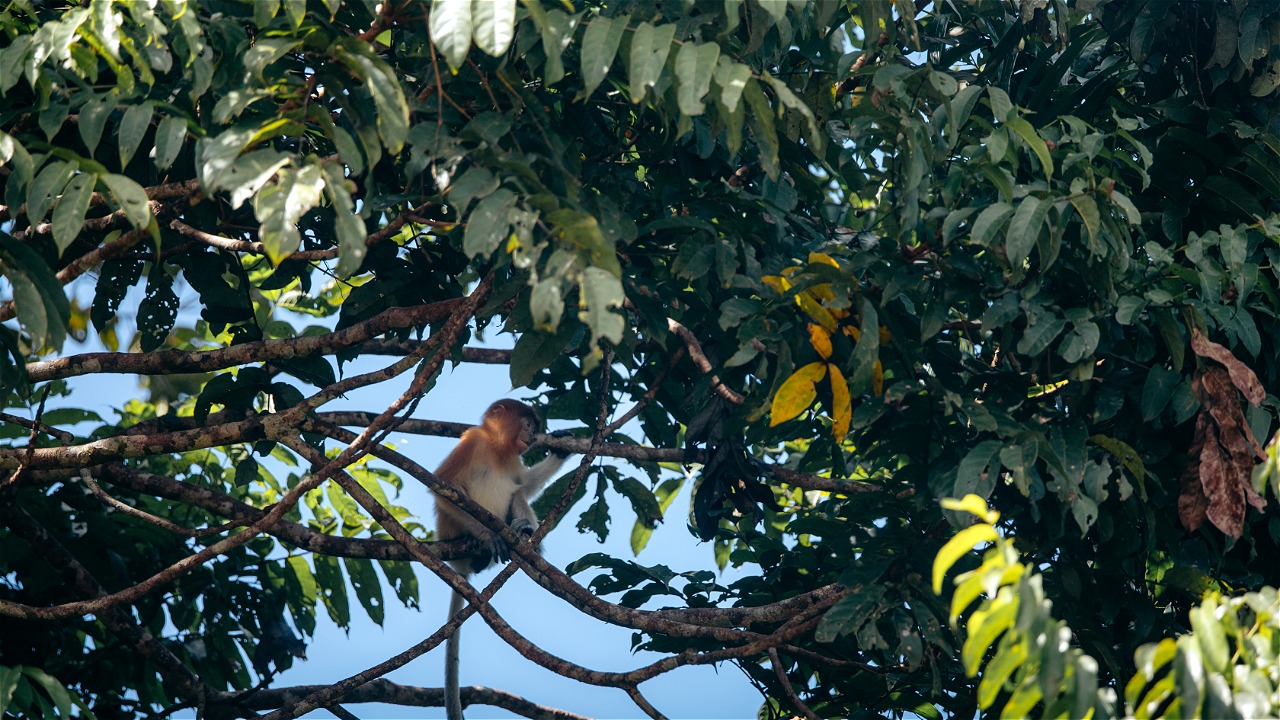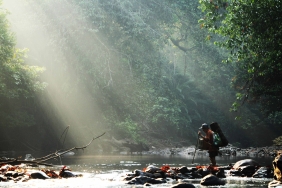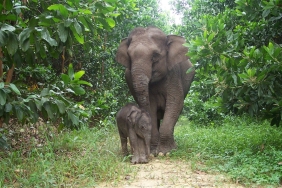WORKSHOP TO REFINE DRAFT OF HOB NATIONAL STRATEGIC AREA HELD
Palangka Raya, 23/9 - For two days at Luwansa Hotel, Palangka Raya, the Provincial Government of Central Kalimantan and WWF Indonesia Central Kalimantan Program held a Consultation Workshop on Draft National Strategic Area in the Heart of Borneo region.
This workshop is a continuation after the establishment of the HoB National Strategic Area (KSN HOB) as one of the 75 KSNs that have been determined in the National Spatial Plan (RTRWN). Officially opened by the Regional Secretary of Central Kalimantan Province as well as the Chairperson of the Regional Spatial Planning Coordinating Board, DR. Siun Jarias SH, MH said, "This consideration is because as an area that has strategic value from the environment because the HoB region is located at the state border, part of this area is also included in the RI-Malaysia border strategic area (KASABA)."
In this workshop, the KSN HoB team led by the Head of the National Spatial Planning Sub-Directorate, Budi Situmorang, from the Ministry of Public Works will present the draft policy, strategy and spatial pattern as well as the structure of the HOB development direction. "It is expected that the district administration areas included in the HoB area and the provincial government can provide responses and input to improve the draft KSN HOB draft and identify existing data gaps and future plans for completion and further consultation processes until the ratification of the draft KSN HoB draft by the district and provincial governments in Central Kalimantan," said Budi.
With the establishment of the spatial pattern of the HOB national strategic area, the government of Central Kalimantan has decided to establish a spatial pattern for the HOB national strategic area.
With the establishment of the KSN HoB spatial pattern, it can protect protected areas and cultivated areas. Where in protected areas it is encouraged to be able to develop an environmental service economy (such as nature tourism, carbon offset, genetic industry, water services, seed sources, etc.). Cultivated areas need to be directed in the utilization of natural resources with the principles of best management practices with certification standards that are accepted by the market and in accordance with Indonesian government regulations.
==== runs out ====For more information, please contact:
- Dr. Andi Novianto, Chair of the Heart of Borneo Indonesia National Working Group, email: novianto@ekon.go.id
- Wisnu Rusmantoro, National Coordinator of Heart of Borneo Program, WWF-Indonesia, email: wrusmantoro@wwf.or.id
- Wisnu Rusmantoro, National Coordinator of the Heart of Borneo Program, WWF-Indonesia, email.
Note to the Editor:
About Heart of Borneo
Heart of Borneo is a multi-stakeholder, tri-national government initiative of Brunei Darussalam, Indonesia and Malaysia, designed as a sustainable use and conservation program aimed at sustaining the benefits of one of the best remaining forests in Borneo for the well-being of current and future generations. The Heart of Borneo work area spans a series of Borneo's highlands that are directly connected to the lowlands below.
In Indonesia the Heart of Borneo area covers 3 provinces namely West Kalimantan, Central Kalimantan and East Kalimantan. There are 10 districts included in the Heart of Borneo region: Sintang, Melawi and Kapuas Hulu in West Kalimantan; Katingan, Gunung Mas, North Barito and Murung Raya in Central Kalimantan; Malinau, Nunukan and West Kutai in East Kalimantan. Heart of Borneo region covers 3 provinces namely West Kalimantan, Central Kalimantan and East Kalimantan.
Five Working Groups (Pokja) have been established, namely the National Working Group (cross-sector), the Forestry Working Group (in the Ministry of Forestry) and 3 Provincial Working Groups (in Central Kalimantan, West Kalimantan and East Kalimantan). These Working Groups are responsible for facilitating the development of the National Action Plan which is the mandate of the HoB Declaration. This action plan synergizes with the three countries' Strategic Plans and each province's action plan as well as local aspirations.
About WWF
WWF is an independent, global conservation organization founded in 1961 in Switzerland, with nearly 5 million supporters and an active network in more than 100 countries and in Indonesia working in more than 25 field regions and 17 provinces. WWF-Indonesia's mission is to save biodiversity and reduce the ecological impacts of human activities through: Promoting a strong conservation ethic, awareness and conservation efforts among Indonesians; Facilitating multi-stakeholder efforts for the protection of biodiversity and ecological processes at the ecoregion scale; Advocating for policies, laws and law enforcement that support conservation, and; Promoting conservation for human well-being, through the sustainable use of natural resources. For more about WWF-Indonesia, please visit the organization's main website at http://www.panda.org/; local sites at http://www.wwf.id/ and WWF-Indonesia's membership site at http://www.supporterwwf.org/.WWF-Indonesia and Heart of Borneo: http://www.wwf.or.id/ or http://www.wwf.or.id/hob.
**DONE**





